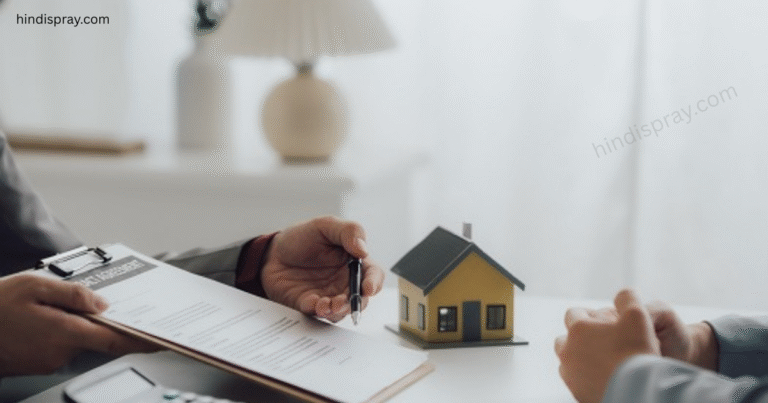Owning a home comes with many responsibilities, including protecting yourself from potential legal and financial risks. One of the most crucial, yet often overlooked, components of a homeowners insurance policy is liability coverage. Homeowners liability insurance provides essential protection in the event that someone is injured on your property or you unintentionally cause damage to someone else’s property.
In this comprehensive guide, we will explore what homeowners liability insurance is, how it works, the protection it offers, and why it’s a critical component of a sound financial strategy.
Understanding Homeowners Liability Insurance
What Is Homeowners Liability Insurance?
Homeowners liability insurance is a component of a standard homeowners insurance policy that covers legal and medical costs if you are found legally responsible for injuries or property damage to others. It serves as a financial safety net against lawsuits and damage claims.
This coverage typically includes:
- Bodily injury to others on your property
- Property damage you or family members cause to others
- Legal defense costs
- Medical payments for injuries that occur on your property (in some cases)
How It Differs From Other Insurance Types
Unlike health insurance or property insurance, liability insurance doesn’t cover damage to your own property or injuries to your own family. Instead, it is designed to protect you from third-party claims and lawsuits.
Why You Need Homeowners Liability Insurance
Legal Responsibility and Financial Risk

Accidents can happen at any time. If someone slips and falls on your icy driveway or your dog bites a visitor, you could be held legally liable. Without liability insurance, you would have to pay for legal defense, settlements, and medical bills out of pocket.
Protection From Lawsuits
Lawsuits can be expensive and time-consuming. Liability insurance covers the cost of your legal defense and any court-ordered damages, which can easily reach tens or hundreds of thousands of dollars.
Peace of Mind
Knowing that you have liability coverage allows you to live with greater peace of mind. You can entertain guests, hire contractors, and let your children play outside without constant worry about potential liabilities.
Coverage for Off-Premises Incidents
Many policies also cover incidents that happen away from your property. For example, if you accidentally damage a hotel room or your child breaks a neighbor’s window, your homeowners liability insurance may still apply.
What Does Homeowners Liability Insurance Cover?
Bodily Injury to Others
If a guest trips over a loose carpet in your living room and suffers an injury, liability insurance can cover medical expenses, rehabilitation costs, and even compensation for pain and suffering.
Property Damage
This coverage includes damage that you or members of your household cause to someone else’s property. For example, if your child throws a baseball through a neighbor’s window, the cost of repairs may be covered.
Legal Fees and Court Costs
In the event of a lawsuit, homeowners liability insurance typically covers the cost of hiring an attorney, court filing fees, and any awarded settlements up to the policy’s limit.
Medical Payments to Others
Some policies include a separate provision for medical payments, which pays for minor medical costs (e.g., emergency room visits) without requiring legal liability to be established.
What Is Not Covered by Homeowners Liability Insurance?
Intentional Acts
Any intentional damage or harm caused by you or a covered family member is not covered. Insurance is designed to protect against accidents, not deliberate actions.
Business Activities
If you operate a business from home, liability resulting from those activities may not be covered under your standard homeowners policy. Separate business insurance would be required.
Injuries to Household Members
Your own injuries or those of your family members living in the home are not covered under liability insurance. These would fall under health insurance.
Certain Dog Breeds or Exotic Pets
Some insurers exclude liability coverage for dog breeds considered high-risk or for exotic pets. Always check your policy to see if there are any exclusions.
How Much Coverage Do You Need?
Standard Coverage Limits
Most homeowners policies include a minimum of $100,000 in liability coverage. However, many financial advisors recommend at least $300,000 to $500,000, depending on your assets and lifestyle.
Umbrella Insurance for Additional Protection
If you need higher coverage limits, consider purchasing an umbrella insurance policy. This type of policy provides additional liability coverage beyond the limits of your homeowners insurance, often in the range of $1 million or more.
Real-Life Examples of Liability Claims
Example 1: Slip and Fall
A delivery driver slips on your icy front steps and breaks their arm. They file a lawsuit for medical costs and lost wages. Your liability insurance covers the legal fees and the settlement.
Example 2: Dog Bite Incident
Your dog escapes from your yard and bites a neighbor. They require stitches and physical therapy. Your policy covers their medical expenses and any related legal claims.
Example 3: Property Damage
Your child hits a baseball through a neighbor’s expensive glass window. The insurance pays for the cost of repair.
Tips for Minimizing Liability Risks
Maintain Your Property

Regular maintenance of walkways, stairs, railings, and lighting can prevent accidents.
Supervise Pets and Children
Ensure that pets are secured and children are supervised, especially around guests or in public areas.
Avoid Hazardous Features
If you have a swimming pool, trampoline, or other high-risk features, ensure they are properly fenced and supervised.
Post Warning Signs
Use signs to alert visitors to potential hazards like wet floors or slippery driveways.
Also Read: Understanding Life Cover: What It Is And Why You Need It
Conclusion
Homeowners liability insurance is a vital component of protecting yourself and your assets from unexpected legal and financial liabilities. It provides peace of mind knowing that if someone is injured on your property or you accidentally damage another person’s property, you have financial support to handle the situation. While it may seem like an optional add-on, it is, in fact, a crucial safeguard for responsible homeownership.
When purchasing homeowners insurance, ensure you understand your liability coverage limits and consider supplemental umbrella insurance if necessary. It’s a small investment for potentially significant protection.
FAQs
1. Is liability insurance required for homeowners?
While not legally required, most mortgage lenders mandate homeowners insurance, which includes liability coverage. Even without a mortgage, it’s a wise financial move.
2. Does homeowners liability insurance cover dog bites?
Yes, it typically does, but some policies exclude certain breeds or require a rider for pet-related liability. Check with your insurer.
3. What happens if my liability claim exceeds my coverage limit?
You would be personally responsible for any costs beyond your coverage limit. This is why many opt for umbrella insurance for additional protection.
4. Can I increase my liability coverage?
Yes, most insurers allow you to increase your liability limits for an additional premium. It’s often affordable and highly recommended.
5. Does liability coverage extend to incidents off my property?
In many cases, yes. If you or a family member accidentally cause damage or injury off-premises, your policy may still provide coverage. Always verify with your provider.

